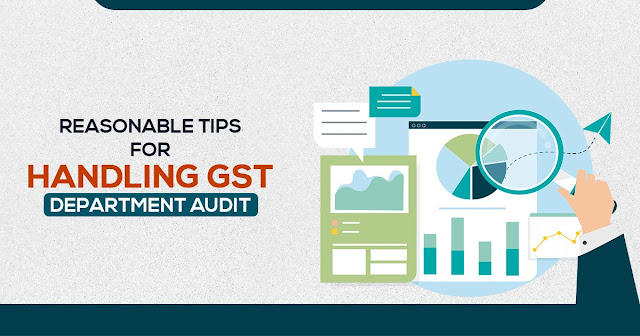The departmental audit involves reviewing departmental accounts to ensure correct tax payments, proper utilization of Input Tax Credit (ITC), avoiding excessive refund claims, etc. With the looming deadline for issuing show cause notices for the period of July 2017 to March 2018, the department has intensified its audit activities, aiming to finalize audits, raise audit points, and issue notices promptly.
Hence, registered individuals must understand and adhere to effective practices to facilitate a smooth departmental audit. Though it might seem improbable, achieving a seamless departmental audit is plausible. Here are some recommended practices for handling departmental audits.
Appropriate Provision Under the CGST Act
- Section 65 of the CGST Act furnishes that the commissioner or any officer authorized by him can perform an audit of any registered person.
- The audit can either be performed at the place of business of the registered person or the officer of the departmental officer.
- The audit must ideally be completed within 3 months from the date of the start of the audit. The period can be extended for 6 additional months.
- Audit findings must be informed to the registered person in FORM GST ADT-02.
GST Department Audit Preparations
- Prepare a concise description of your business's nature and its revenue sources. This information might be requested by the department
- Ensure your financial turnover aligns with the turnover reported in GST records. Have an explanation ready for any disparities, which could stem from factors like unaccounted revenue, financial discounts, inter-company invoices, etc
- Keep various reconciliations readily available, such as between GSTR-3B and GSTR-1, GST returns and your accounting books, GSTR-2B and GSTR-3B, e-way bills, and GSTR-1, among others Create financial statements linked to each GST Identification Number (GSTIN) to prevent unnecessary disputes, as company-wide financials may not provide relevant details to the officer
Effective Practices for GST Department Audits
Below mentioned are some good practices for managing departmental audits:
- The documents list which is needed to be submitted must be specified in FORM GST ADT-01. In the ADT-01 list, a standard bigger list is to be added and therefore the enrolled individual must provide merely specific documents which are available to him.
- Before sending it to the department double-check all the incurred submissions.
- Co-operate with the departmental officers and furnish the data which is requested. Do not provide any extra/short information.
- You must confirm that the department has issued FORM GST ADT-01 i.e., notice for conducting a GST audit before the audit is conducted.
- Inspect the place at which the audit is suggested to be conducted. It can be a desk audit or a field audit. The registered individual might have to answer and act as per that.
- When the case is that the audit is proposed to be conducted at the business premise of the registered person, then the visit by the audit party must be recorded in a Logbook.
- If you need more time to submit specific documents, you can request an extension in writing by providing reasons for the delay.
- It's important to exclusively communicate with the department through written means. Refrain from engaging in verbal discussions with departmental officers. Emphasize the necessity of written correspondence in all interactions. Some forms of communication with the department include:
1. Documents sending
2. Wants additional time
3. Reply to GST audit objections
- If there's an unintentional oversight leading to a genuine outstanding liability, settle it promptly along with the accrued interest before receiving a show cause notice. Paying the tax and interest prior to the issuance of the notice exempts one from penalties according to sections 73(5) and 73(6) of the CGST Act. Thus, addressing the tax and interest prior to receiving the show cause notice results in avoiding penalties and interest charges altogether.
- The aforesaid payment should be incurred in GST DRC-03 given that the time limit for making adjustments in returns has passed.
- When making voluntary payments, please designate the payment under "Section 73(5)." Once the payment is processed, it's essential to formally notify the officer in writing.
- In response to the audit points raised, it's advisable to draft a comprehensive reply citing relevant provisions, circulars, case laws, etc. This approach significantly reduces the likelihood of the matter escalating to the show cause notice stage. Strong, legally supported responses during audits can lead to the resolution of points without costly litigation. Seeking professional guidance and support for addressing departmental correspondences is recommended.
- Upon the conclusion of a departmental audit without any liabilities identified, it's prudent to request confirmation from the department. Obtain written confirmation stating that the audit has concluded, affirming the absence of any liabilities.
- Should there be no communication forthcoming from the department, it is advisable to send a letter confirming the closure of the audit and the absence of any remaining liabilities, while requesting formal confirmation from the department.
- The author believes that following these practices can lead to a more systematic, practical, and professional handling of departmental audits.


Comments
Post a Comment